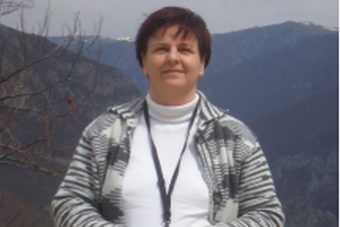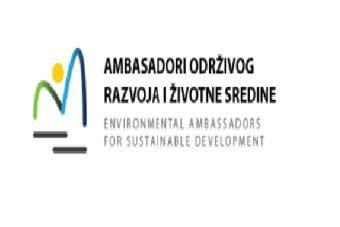
Sustainable development implies balance between the consumption of natural resources and the ability to restore natural systems. There is no precise definition, even in the dictionaries at the beginning of the 20th century, in the Oxford Dictionary for example, the term sustainability is not mentioned. One of the modern definitions from 1987 is associated with the Bruntland Commission and presented in the report “Our Common Future”. It was concluded then what are the basic guidelines of the future operation of the United Nations in the field of environmental protection. This definition reads as follows: Sustainable development is development which satisfies the needs of today, while it does not compromise the ability of future generations to satisfy their own needs.
Bruntland Commission is otherwise World Commission on Environment and Development founded by the United Nations Organization in 1983. It was named after the surname of Prime Minister of Norway, Gro Harlem Bruntland, who was the Chairman of the World Commission on Environment. On this occasion for the newsletter Responsible Companies we talked to Mrs Aleksandra Mladenović from the association Environmental Ambassadors for sustainable development.
We wondered whether this association follows the aforementioned principles, and whether, according to their experience, the industrial sector in Serbia takes care of future generations and their needs.
EP: Tell us more about Environmental Ambassadors for sustainable development. What does the association do and what are your findings about the environmental protection in Serbia taking into account all the facts?
Aleksandra Mladenović: The association Environmental Ambassadors for sustainable development in the basis of its operation has four pillars: education, promotion of scientific work and innovation, environmental protection and sustainable development, including all its components. In particular, we have significant activities within the regional international cooperation with a special consultative status in UN ECOSOC, we are accredited by UNEP and many other significant international organizations. Within the team we have professional teams and experts, whose experience we use to upgrade our work. We deal with the issues of importance to environmental protection from different angles. As a professional association of experts we propose solutions to the identified problems, from the perspective of profession, science and practice. As a civil society association we formulate critical viewing based on knowledge and information in relation to the activities of decision makers, when it comes to both big or small problems in the environment. As citizens holders of the major changes in the society, we support and cooperate with all the organizations, institutions, associations, local communities and national institutions, so that we all together provide a healthy environment and unable the unhindered development and prosperity for ourselves, our environment and future generations.
Taking into consideration that we repeatedly had opportunity and initiative to personally participate in proposing, giving opinions, criticizing and correcting regulations that primarily relate to waste, waters, chemicals, nature protection, we support all positive changes in legislation which must occur in the process of joining the European Union, in order to show potential, readiness and willingness to be a driving force behind these changes. Our legislation complies at a rather high percentage with the European legislation, whose achievements we strive for. However, a major problem is the implementation of regulations and mechanisms for sanctioning of inadequate procedures of individuals and institutions/ business entities. This leads to unforeseen accidental situations in the environment, hazardous to human health and nature.

EP: Chapter 27 is one of the Chapters which should open in order for Serbia to join the EU. What are the things we have to do in order to meet the required standards?
Aleksandra Mladenović: It’s a long way for our country. The Chapter 27 (environment and climate change) is very demanding and it is difficult to compare it with other chapters (for example, there are around 60 EU directives that we should adopt and implement). It is said that it is the most complex and most demanding chapter, precisely because of this complexity and the great number of demands which must be met in a limited time period. There are many things which Serbia will have to meet in accordance with all its available resources, manpower and financial, within the Chapter 27. Some of the problems for Serbia are inadequate systems for waste management and water management (both for infrastructure and system solutions), then, the ack of understanding for the climate change and non-implementation of its mitigation measures. We should also mention inefficient system for funding of nature conservation and environmental protection, still not established efficient and sustainable management of natural resources… So there are many problems which haven’t been solved timely and the current approach has led us to where we are now and thus we have a “headache” from “the famous Chapter 27” and we do not know how we will fulfill those demands!
Therefore it is very important to identify on time – that is immediately, the issues for which we will ask the EU to extend the deadlines. In this regard, we will need the international support especially from the developed countries, especially from the ones which have gone through the entire process, in both consultant and financial terms, which can be achieved through IPA and other available funds in the stage of the EU accession. We will need the help of bilateral donors and we will have to separate our own funds.
EP: How do the industry and production companies take care about the environment in Serbia? Is corporate responsibility sufficiently developed?
Aleksandra Mladenović: When it comes to corporate responsibility, it is something that is increasingly becoming topical and it is good that this is the case. In the following few years we will have well defined business entities which will succeed in surviving on the increasingly demanding market in terms of respecting the principles of environmental protection and sustainable development. So called “green procurement” or “sustainable use and production” are no longer recommended terms, but obligatory. A company can easily lose a job if it participates in tenders and it doesn’t respect these terms. This is something that business sector least likes. To be honest, business sector doesn’t like all these “eco”, that is “green” stories either. They are very demanding, there are compulsions and regulations, but as soon as they face the fact that the European Union (and international market) wants to include in their membership only the countries with clearly defined environmental policy it “will hurt them less” later.
It is about time to get used to throwing different types of rubbish into differently colored bins. It is necessary to get used to the filters which the factories need to install, renewable energy sources instead of individual furnaces due to which at least half of Serbia is under fog, smog and smoke during winter… All these things need to “hurt”, we don’t have to love or accept them, but we need to be prepared to change. Many companies have already made their own programs of corporate responsibility. I would particularly point out to the company “Tetra Pak Production Ltd” with which we have been cooperating for three years in a row on a project Eco-Pack (educational and demonstrational project on the proper treatment of tetra pack packaging). We have a very good cooperation through our Foundation for education on environment programs (programs “Green Key“, “Blue Flag“, “Eco-schools“, “Young Eco-reporters“) with “Tetra Pak Production Ltd”, also with the hotel “Radisson Blu” and “IN hotel”, public enterprise “Ada Ciganlija” and the City of Belgrade, many other local communities, “VIP Mobile”, “RECAN” foundation…
These are all companies, organizations and even local administrations which live from the citizens’ money. They have in accordance with their business orientation chosen not so simple and easy way to be socially responsible towards their environment and the environment which they “borrow” from other citizens. Taking water, space and energy through the improvement of the conditions in the same environment, they take back the part of the profit in order to have better resources and to be able to use them longer.
EP: What are the best examples from practice which we should follow? What would be the first thing that we should implement?
Aleksandra Mladenović: All the activities in the field of environmental protection are more likely to succeed if experts work on solving the problems, and if the education in environmental protection finds its place. It is necessary to act responsibly towards the environment and resources and that should become a social norm. This is the reason why Environmental Ambassadors for sustainable development foster education, promotion of scientific research, innovation and profession in the field of environmental protection and sustainable development. For now, the best example from practice are 56 educational institutions from entire Serbia which were included in Eco-schools program and which promote true values of the environment in their local communities.
There are also two big hotels in Serbia, whose management is sufficiently aware to realize that they are big users of resources and environmental polluters. They conceptualize their work on sustainability and preservation in accordance with the criteria of the Green Key. There is also “Ada Ciganlija”, public enterprise which in cooperation with the city Administration of Belgrade works on the improvement of the conditions for the users of this beach every year. This beach is certified with the Blue Flag due to that. Then, there are also hundreds of Young Eco-reporters which do not turn their heads from the everyday problems of water, air and soil pollutions. They notice what is good and what is not and they know to propose possible solutions… There is also us, the citizens of the only Serbia that we have and if we do not start applying the examples of good practice, making and respecting good laws, protecting every our plant and animal because it is valuable for us. If we do not do all these things for ourselves, we will not be good to ourselves and Europe will not have us if we are irresponsible!
Interview by: Vesna Vukajlović
This interview has been published in Energetski portal bulletin “Responsible Companies Environmental Protection” in March 2016.

